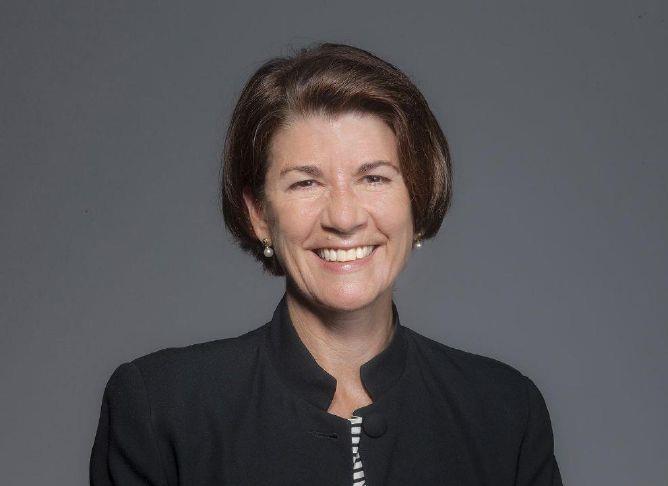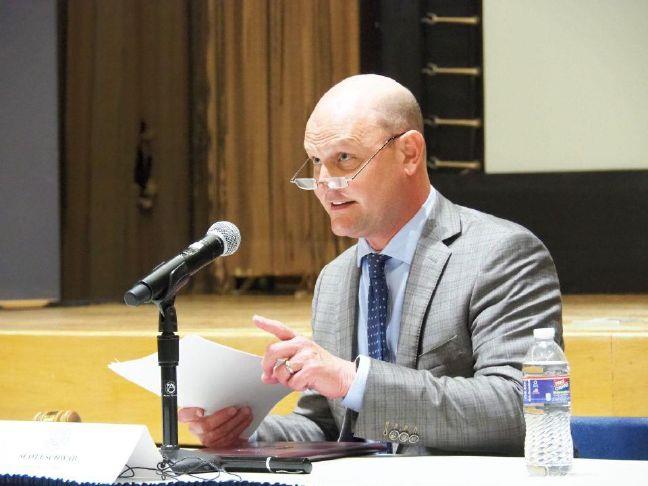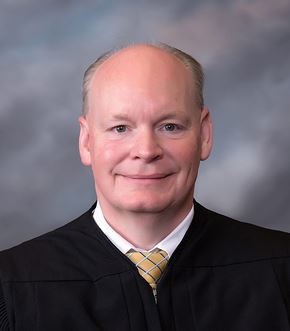June 2024

Ask Amy: Parents are unhappy with current housemates
Dear Amy: My husband and I bought a house seven years ago. It has a finished basement. The basement has a bathroom, a bedroom, and a den in it.

Schwab refers No Labels nomination fiasco to Kansas attorney general for criminal inquiry
Secretary of State Scott Schwab forwarded evidence to the state attorney general asserting a prominent Kansas campaign consultant may have falsely impersonated a political party officer while attempting to take control of the No Labels Kansas party by filing not-for-profit corporation documents.
Kelly administration's broadband development director ousted after two years in role
The Kansas Department of Commerce confirmed Monday the director of the agency’s broadband development for the past two years in the administration of Gov. Laura Kelly was forced out.

Post season honors issued to Ellis, TMP, Hays softball
Post season honors were issued over the week to 5A and 2A athletes competing in post season softball. From Thomas More Prep-Marian, four athletes were selected to first team, second team and honorable mention. From Hays High, Riley Dreher was the lone Indian to receive an honorable mention. Ellis was honored with a pair of first and second team selections.

Community Service & Police Officers to Enforce Summer 2024 Water Restrictions
Hays Police Lieutenant Brandon Wright sought to remind residents during the City’s June 4 Press Briefing that the summer 2024 water restrictions went into effect June 1, continuing through September 30. The summer 2024 restrictions prohibit outdoor water use between noon and 7 p.m.

Kansas Profile – Now That's Rural: KJ Wall, rural attorney shortage
Kansas Supreme Court Justice KJ Wall walks into a room, but this isn’t the Supreme Court Chambers. It’s not even a courtroom. This room is at a high school in Ashland, Kansas. A group of high-schoolers had an opportunity to meet a Supreme Court Justice through the Kansas Supreme Court Traveling Docket program. Now, the court has launched another initiative to help more attorneys serve rural Kansas. Wall, a Scott City native, graduated from K-State and then went to KU law school. He had a distinguished law career before being appointed to the bench in 2020. The Supreme Court began observing a disturbing trend in the legal system: Rural areas were becoming underserved. For example, 80% of Kansas attorneys are located in the state’s six most populous counties. “Our chief judges were telling us they didn’t have enough attorneys to make appointments, and we have successful older attorneys who weren’t finding folks to take over their practice,” Wall said. In December 2022, Chief Justice Marla Luckert issued an order establishing a Rural Justice Initiative Committee to be chaired by Justice Wall. That committee includes rural judges and attorneys; legislators; and representatives of agriculture, business and nonprofit organizations plus the Office of Rural Prosperity and Washburn and KU law schools. The committee is staffed by Laurel Searles, Chief of Attorney Services and Compliance in the Office of Judicial Administration at the Kansas Supreme Court. The committee is to study the issue, gather data, and make recommendations by fall 2024. Statewide surveys and listening sessions have been conducted along with interviews of law school students. “(The shortage of attorneys) is becoming a constitutional crisis,” Wall said. “People have a right to representation.” Searles adds: “People in rural Kansas deserve access to attorneys just like people in the cities. And, “as more attorneys retire, it is getting more difficult for people to be served,” said committee member and attorney Ashley Comeau of Plainville. Comeau is a young professional who graduated from Washburn Law School. She and her husband moved back to their home area in northwest Kansas where she joined a Hays law firm and maintains a practice in Plainville. “We would like to replicate people like Ashley, who worked with a large law firm in Kansas City but chose to come back to her home area,” Wall said. “I thought we just needed to attract more attorneys to non-urban locations, but the law schools are telling us they don’t have enough people applying in the first place.” That means more young people need to be encouraged earlier to consider a career in law. “We need to start these conversations earlier in a student’s career,” Searles said. “There are lots of opportunities to work in the legal field. We’re now seeing law firms participate in high school career fairs.” Student debt is a huge issue. “We need to be more flexible and open when considering incentives to bring students to rural Kansas,” Comeau said. “We also need to help students feel that they belong in those communities,” Searles said. So why practice in rural Kansas? “You develop closer relationships and can do a lot more hands-on work,” Comeau said. “This type of work really makes a difference and gives you more purpose,” Searles said. Wall agreed. In some cases, he believes the financial returns of a rural practice could even exceed that of an urban practice in the long run. In 2011, the Kansas Supreme Court began conducting a traveling docket where cases are heard in communities around the state. While there, the justices also visit local schools and inform students about legal careers. That’s how Justice KJ Wall came to meet the high school students in the rural community of Ashland, population 783 people. Now, that’s rural. We commend Justice KJ Wall and all of the Kansas Supreme Court, plus Laurel Searles, Ashley Comeau and others involved in this initiative. I hope it helps move more students from the high school classroom to the hometown courtroom. Audio and text files of Kansas Profiles are available at http://www.kansasprofile.com. For more information about the Huck Boyd Institute, interested persons can visit http://www.huckboydinstitute.org.

The Lowe Down: The decline of integrity . . .
What has become of integrity? Have you noticed it has become more difficult to observe within our daily lives and well, when witnessed in politics, it’s like a unicorn sighting. Maybe it is something you have to value in order to realize it is missing or to recognize when you see it. Like many, I was raised to believe that integrity is the gold standard in achievement as a human being. I was taught that it doesn’t matter if people can or cannot witness our actions, it is important to do the right thing regardless. There’s an emotion I can only describe as a deep disappointment, almost a heavy physical feeling in my core, when I witness someone betraying their integrity. It’s as if I’ve observed someone selling a piece of their soul. It doesn’t matter the reason, whether it’s for money, greed, convenience, friendship or a favor owed. I know in the rational part of my brain that we humans are not perfect, and occasions will arise where people will disappoint, but dadgum, it hits hard when I am an eyewitness to it or worse when I feel I have fallen short of my expectations for myself. And sometimes it’s the little things that we give in on that hit the hardest; the justifications and rationalizations we tell ourselves to try to make it right within us. Integrity doesn’t exist on a sliding scale; either people possess it, or they do not.
Men's and Women's Golf Place Five on MIAA Academic Honor Roll
The Fort Hays State men's and women's golf teams placed a combined five student-athletes on the 2023-24 MIAA Academic Honor Roll, announced on Thursday (June 6) by the conference office. The Tiger men had three individuals listed, while the women's squad had two on the list.

